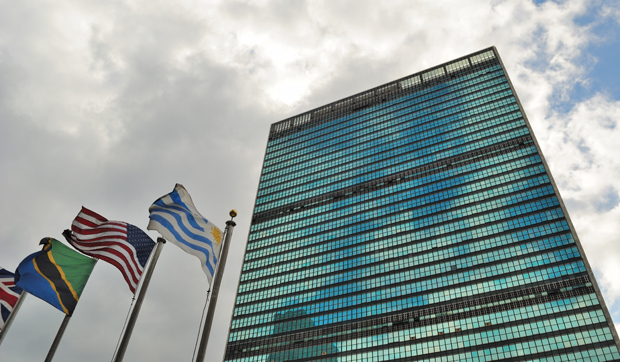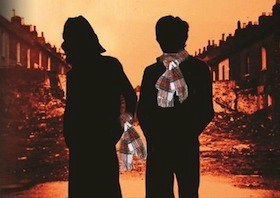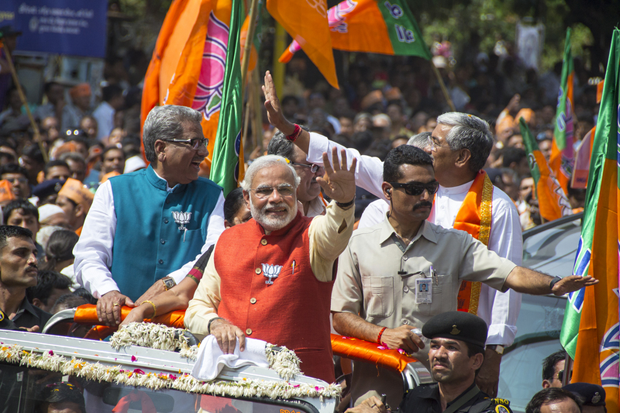30 May 2014 | News and features, Politics and Society, United Nations

In a discretion well known to diplomatic circles, the United Nations so-called Committee on NGOs is meeting in New York this week. It is to select which NGOs fit the institution. The 19-member body’s aim could be to ensure a high-level and quality participation of independent NGOs to the United Nations – it is instead the 21st century censorship bureau.
Any governmental institution has to establish mechanisms by which participation of external organisations and lobbyists is regulated. The role of the Committee on NGOs of the United Nations is to look into applications of NGOs from all around the world. It is supposed to assess, case by case, whether the applicant NGO respects the Charter of the United Nations and abides by basic principles such as non-violence and democracy.
We know how much civil society has contributed to the development of the United Nations as such, and has been a force in pushing States to adopt a set of internationally binding standards to protect human rights and so many other issues. Access to the international bodies allowed NGOs to have a direct and formal input into the discussions. Unlike lobbyists at parliaments, representatives of NGOs can officially participate in the debates at the United Nations Human Rights Council. No need to be invited by an official or find strategies to get in contact with decision-makers. The access guaranteed to independent civil society, representing values and principles, not financial interests, is at the very core of the United Nations and a consequence of the organisation recognising it would be nothing if it had to count only on States to build itself and its standards up.
Some of those States are indeed the ones most willing to silence critical NGOs.
Throughout the globe, NGOs are fighting more and more for their own space in society, for their ability to work and defend victims of human rights violations. The work used to be all about those who loose their lives working as slaves, those who end up behind bars because of their beliefs, their engagement or their sexuality, those who loose their houses because from a day to another a ruler wants the land or a country believes it has the absolute right over it. Human rights defenders used to give body and soul to those people, and to so many others. Now, we need to include that we need to challenge governments shrinking the ability of those fighting for rights – human rights defenders need more and more to fight for themselves and their own space.
The United Nations should be an arena of dialogue aspiring to protect victims and promote peace. To do so, various voices are needed at the table. However, those who shrink space for civil society at home certainly do not want to see them at the table in New York or Geneva, or at any other international forum for that matter.
Along with inter alia Cuba, Pakistan and Venezuela, China and Russia are long-standing members of the Committee of NGOs. Both can proudly wear a label of censorship. Following President Vladimir Putin’s third election in March 2012, the country is undergoing a wave a repression and has adopted some of the most draconian laws against independent civil society. Dissenting with the Chinese regime is at the cost of one’s life, safety and integrity. The same behaviour is being observed by China and Russia at the Committee on NGOs – the institution is its tool to repress those the countries’ leadership do not agree with. And the consequences are grave. As world powers and permanent members of the Security Council, the two countries are already immune to critics within the UN on their rights record. The repression against political activists, human rights defenders and their NGOs, should have brought both countries to the centre of debates at the Human Rights Council and the General Assembly. It did not because they effectively prevents critics from getting into the room. Other States are now following the same strategy; one cannot believe that Azerbaijan, which will become a member of the Committee in 2015, shows a genuine interest in NGO participation in the international debate when it jails those who want to monitor the public life in Azerbaijan, such as the leader of the country’s only independent election monitoring group Anar Mammadli.
Member States of the Eastern European Group in the United Nations (the geographical groups are one of the legacies of the post world war era) should have run against Azerbaijan and Russia. Many of those Eastern Europe States are within the European Union. The Union was a step behind others by omitting to see that its willingness to promote rights and democracy in its direct neighbourhood will be affected by leaving a censorship tool in the hands of people who enjoy it.
Western countries have on their side left Turkey run unopposed for the Committee. The country has singled itself out recently, from all members of the Western European and Others Group, in blocking access to social media, especially Twitter. The single fact that a leader believes the power held in his hands allows him to block freedom of expression on the media of one’s choice should imply that that leader’s government is not to participate in the selection of civil society organisations participating in shaping the international arena.
Within the protected compound of the United Nations in Manhattan, the Committee on NGOs is this week looking into accepting those NGOs nobody will oppose, whilst blocking those NGOs publicly and forcefully engaging for human rights, including rights of people belonging to minorities or espousing minority beliefs. States should stand up for the space for critical NGOs. They might have the numbers and if they do not they are on the honourable side trying to support those NGOs that deserve to be at the United Nations. There is no shame in losing against censors – there is one in not trying to oppose them.
This article was posted on May 30, 2014 at indexoncensorship.org
30 May 2014 | News and features, Religion and Culture, United Kingdom
 For the last two decades the stubborn, powerful myth that the creative arts and the Protestant working class in Northern Ireland do not go together has been regularly proclaimed.
For the last two decades the stubborn, powerful myth that the creative arts and the Protestant working class in Northern Ireland do not go together has been regularly proclaimed.
Closer reading reveals a plethora of Protestant dramatists including, but not limited to: Sam Thompson, Stewart Parker, Ron Hutchinson, Christina Reid, Graham Reid, Marie Jones, and Gary Mitchell. This is of course a typically unfortunate sectarian head-count, but a necessary one in light of matter-of-fact declarations from Irish Republicans that Ulster Protestants have ‘no culture’, and – perhaps more damagingly – the identical conviction of a large number of working class Protestants themselves.
With this is mind it is worth distinguishing between ‘loyalist’ and ‘Protestant working class’ voices. The phrases have become interchangeable (despite the way the Protestant electorate has long given loyalists the cold shoulder), and many local and international commentators in the media and academia continue to refuse the distinction. On the other hand, with the exception of the lively 1982 community play This is It!, loyalists are indeed without any real lineage in the theatre.
It is therefore vital that Ulster loyalists take their place on the stage, a process which began on 1 May when Bobby Niblock’s play Tartan opened in East Belfast’s Skainos Centre before going on to close the city’s Cathedral Quarter Arts Festival. A production of the recently-formed Et Cetera theatre company, this was an avowedly loyalist exercise in the sense that Niblock is an ex-prisoner depicting one of its stories. Initially the Tartans fought other gangs from within the same community but many went on to join loyalist paramilitary groups, a difference and tension the play explores.
At an Index on Censorship symposium held in the University of Ulster’s Belfast campus on 3 May, I was charged with leading one of four breakout sessions exploring why loyalist voices are under-represented in the theatre. The challenge facing the Et Cetera group was brought home when only one person from this comfortable set showed up, perfectly encapsulating part the problem. The one major complaint of loyalists in post-Troubles Northern Ireland is that their voice is simply ignored. I was initially apprehensive about spearheading a discussion even mentioning ‘loyalism’, as it is now a pejorative term of abuse. The way the conference attendees reacted typically reflects the complete unwillingness to engage with this disillusioned section.
Many loyalists have hitherto been convinced that the best way they can make their voices heard is to block roads and intimidate. They feel the ‘peace process dividend’ has nothing to offer them, while report after report pitches the Protestant working class male right at the bottom of the educational attainment table (only just in front of Irish traveller and Gypsy/Roma, according to the latest Peace Monitoring Report). These are the men who find themselves languishing in the back of police vans and holding cells at the end of an evening of rioting, as well as being the first target for the paramilitaries.
No-one would be so naïve as to believe that a play alone could stop violence, but seeing a play – like all art – can soften human beings as well as advance understanding. The late Seamus Heaney once said of his own medium that ‘It can eventually make new feelings, or feelings about feelings, happen’, and the creative process often leads to self-examination. In Tartan two young men reflect while they assemble a crate of petrol bombs: it’s their future they’re on the verge of hurling away along with the incendiaries. A diversity of viewpoints are similarly on show. Some of the boys are already hard-liners; others remind us that most Catholics don’t support the IRA. While empathetic to its young, exploited protagonists, it is also upfront about their mistakes and prejudices.
Tartan has flaws – including a noticeably stronger second half – but it is one hell of an opening salvo. The energy of these young males reverberates off the stage, giving speech and form to a violence which continues to scar the North’s streets, as well as highlighting the essence of the Et Cetera group itself: as an outlet for new stories and energies previously untapped.
The dangers of a loyalist underclass are unlikely to be apparent to an English or international audience. They remain rather less deadly than dissident republicans, but Tartan’s relevance – anchored in the perspective of misled young Protestant men – becomes especially resonant in the wake of the increased recruiting and activities of the most serious loyalist paramilitaries.
The Man Who Swallowed a Dictionary, a play about David Ervine – another ex-prisoner who died prematurely of a heart attack in January 2007 – is Niblock’s follow-up project. Earning this (provisional) title in real life for being articulate in a culture which does not value articulacy, Ervine served his sentence in the same prison as Niblock and had represented one of the few political voices for disempowered loyalists. The loss was enormous, but the return of this voice is next.
This article was originally posted on May 30, 2014 at indexoncensorship.org
30 May 2014 | Asia and Pacific, India, News and features

Gujarat Chief Minister and BJP prime ministerial candidate Narendra Modi filed his nomination papers from Vadodara Lok Sabha seat amid tight security on April 6. (Photo: Nisarg Lakhmani/Demotix)
An Indian man has found himself in trouble for allegedly posting a Facebook comments against Indian Prime Minister Narendra Modi. The incident raises serious doubts over online freedom in the world’s biggest democracy
On March 23, shipbuilding professional Devu Chodankar posted in the popular Facebook group Goa+, that if Modi became prime minister, a holocaust “as it happened in Gujarat”, would follow. Modi was the Gujarat chief minister during the 2002 pogrom in which more than 1000 people — most of them Muslims — were killed in communal violence. Chodankar also wrote that it would lead to the Christian community in the state of Goa losing their identity. He later deleted the post. In another Facebook group he regretted his choice of words but stood by the substance of his argument, calling it his crusade against the “tyranny of fascists”.
The incident was reported to the police in March by former chairman of the Confederation of Indian Industries in Goa Atul Pai Kane, who was close to Modi’s party Bharatiya Janata Party (BJP). He filed a First Information Report (FIR) to the police, under sections 153(A), 295(A) of the Indian Penal Code (IPC) and section 125 of the People’s Representation Act and 66-A of the Information Technology Act. Under the former, it is a crime to promote enmity between different groups on grounds of religion, race, place of birth, residence, language, etc., as do acts prejudicial to maintenance of harmony. Meanwhile, the latter makes it a punishable offence to send messages that are offensive, false or created for the purpose of causing annoyance or inconvenience.
In his complaint, Kane said that Chodankar had threatened the group members not to vote in favour of the BJP, as it would virtually make Narendra Modi the prime minister of India. “I made this complaint as Chodankar issued inflammatory statements and tried to create communal hatred. He even refused to withdraw those comments. You cannot make such comments on a public forum. There has to be a limit.”
Police summoned Chodankar for the first time on May 12, and a trial court on 22 May rejected anticipatory bail. Chodankar has left Goa to evade possible arrest. Police want to interrogate him to find out whether he had any broader intentions with his comments, and whether he had plans to “promote communal and social disharmony”.
Social activists and opposition political parties feel that lodging a police complaint over a Facebook comment is an attempt to curb individual freedom, and that such cases would become the order of the day under Hindu nationalist BJP rule. Activists also believe that this type of police action is tantamount to curbing freedom of expression, ultimately meaning that you should either stay away from social media or stop speaking your mind on such platforms.
Amitabh Pandey, a media freedom activist, said: “The message is very clear. You should know how to behave in the cyber world. If you dare to write against Narendra Modi on any social media platform then you should be ready to face the consequences.”
Indian Institute of Technology (IIT) alumnus Dr. Samir Kelekar has been actively working for the case against Chodankar to be dropped. “I feel arresting a person for making a comment against someone is too much. We don’t agree with his comments but we don’t agree with police action either. His comment is not going to affect the society in any way,” he said.
This isn’t the only such case in recent times in India. On 15 May, author Amaresh Mishra was arrested in Gurgaon, in the northern Indian state of Haryana, for posting content on Facebook and Twitter against Modi and Rashtriya Swayamsevak Sangh (RSS), a radical Hindu organisation associated with BJP. Charges alleged he had incited violence against Modi.
Along with social activists, many netizens are opposing the police action against Chodankar. “In a way we are living in a country which claims that we have freedom of expression, but in reality it doesn’t exist,” said Facebook user Animesh Upadhyay, adding that people don’t know which comment will be treated as an offence and might get them arrested.
However, some feel that there has to be a limit. Ashutosh Jaiswal, convener of hardliner Hindu organisation Bajrang Dal said: “The police should deal sternly with such public comments.”
Goa Chief Minister Manohar Parrikar has refused to interfere in the case. In a written statement he said: “As per Supreme Court directives, it is compulsory to register all complaints. A prominent citizen has filed a complaint and judiciary has refused to grant anticipatory bail to the accused person, which proves that there is substance in the complaint.”
He has also stated that there was “no intention” to arrest Chodankar. “He was issued two summons after which he did not appear before police, and his lawyer went for anticipatory bail…Police opposed the bail as a regular process.”
This article was posted on May 30, 2014 at indexoncensorship.org
29 May 2014 | Events


 For the last two decades the stubborn, powerful myth that the creative arts and the Protestant working class in Northern Ireland do not go together has been regularly proclaimed.
For the last two decades the stubborn, powerful myth that the creative arts and the Protestant working class in Northern Ireland do not go together has been regularly proclaimed.